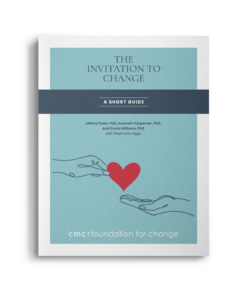Trainer
Dr. Catherine Tellides Jaffee is a clinical psychologist who received her MA and PhD at McGill University in Montreal, Canada. She completed her pre-doctoral internship and two post-doctoral fellowships at Harvard Medical School/McLean Hospital in Belmont, Massachusetts, where she specialized in the treatment of personality disorders and co- occurring mood and substance use disorders. Following her training, Dr. Jaffee served as consultant and interim director for The McLean Center at Fernside, a 30-day dual diagnosis residential treatment facility in Princeton, Massachusetts. She is currently a clinical instructor at Harvard Medical School, a Clinical Associate at McLean Hospital and has a private practice in Lexington, Massachusetts. She utilizes an MI-, CRAFT-, and ACT-based treatment model in her work with individuals and families struggling with substance use and other behavioral challenges.
Q&A
Get to know your trainer
I believe parents need to connect with others who have shared a particular experience that accompanies their children’s substance use. I work with families in my private practice and I feel that alone is not enough for two reasons. One, I do not and cannot reach enough people. Two, parents need to know they are not alone and they don’t always get that sense by just meeting with me. As a parent myself, I understand how important it is to connect with others who have “been there” and can offer some support along the way. CMC:FFC’s trainings help to facilitate that connection.
The time two parents brought donuts- On the first night of a training, a couple shared that they had lost their son to overdose a couple of years prior. It was so emotional, so heart-wrenching to watch this family in their grief. I thought for certain they would not be able to return to the next day of training. How could they possibly re-live this pain and attempt to support other parents through theirs? But they did return the next day. And with donuts. It was at that moment that I understood the magnitude of generosity these families bring to one another. I will never forget that, and it keeps me coming back to offer what I can.
Your child’s substance use is not as crazy at it seems- it serves an important function for them. If you can understand what function it serves, you can maintain a compassionate connection with your child as you help them identify other ways of meeting their needs.

